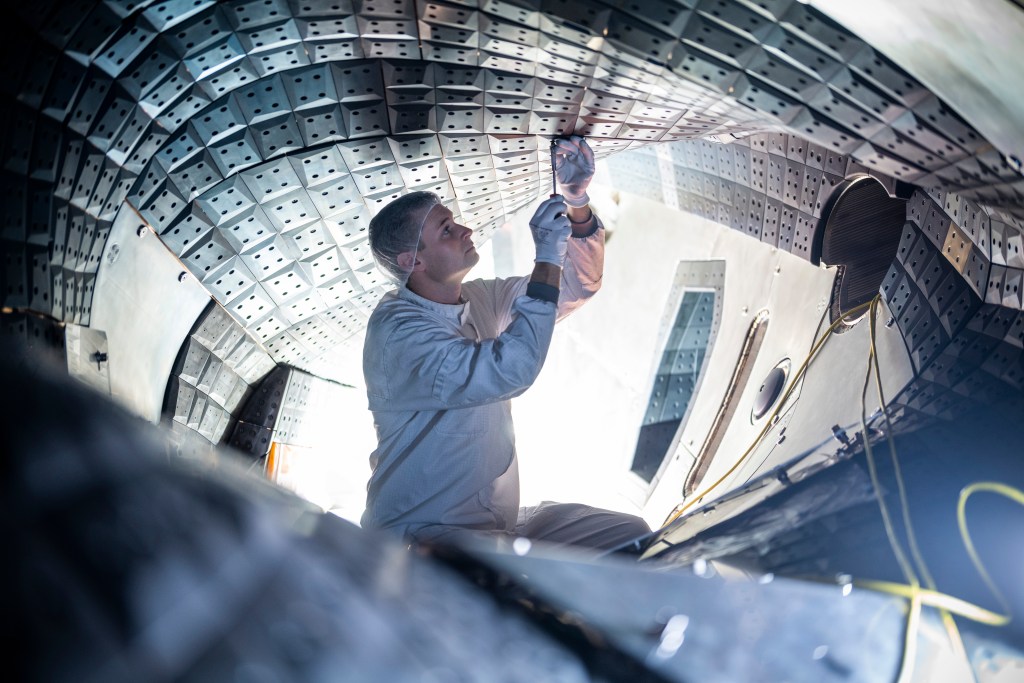Time for some quick word association: When you think of Wisconsin, what comes to mind?
Probably not nuclear fusion.
And yet in the last few years, America’s Dairyland has become a hotbed of fusion startups. With three that are publicly known, only the Seattle area has more. Last week alone, two received millions in grants from the Department of Energy, one of which announced a $9 million seed round.
The secret behind the state’s recent success isn’t so secret: University research programs that have been quietly cranking away for decades are now seeing the fruits of their labor emerge from the lab. Just like Silicon Valley has in Stanford and Cambridge, Massachusetts, has in MIT, Wisconsin has UW-Madison. The capital city is poised to become a key player in an industry that, if all goes well, promises to rewrite everything from energy to manufacturing, chemical refining and even space travel.
For energy, the opportunity is obvious: potentially massive amounts of power fueled by relatively minuscule volumes of hydrogen isotopes. The heat generated when those isotopes fuse would be harvested, most likely by steam turbines, the same technology that pretty much every major power plant relies on today. The electricity could be generated day and night, providing a carbon-free, meltdown-free source of so-called baseload power.
That heat could also be used in industrial facilities, too. Realta Fusion, which announced its $9 million seed round last week, is betting that its design for a fusion power plant will be sufficiently modular to fit in a range of industrial settings, including chemical refineries.
Fusion power might even have a place in space. With cost less of a concern, engineers could shrink reactor designs to fit them aboard spacecraft, where they’d provide both propulsion and electricity.
To disrupt any of those sectors, though, fusion first has to be commercially proven. That’s getting closer. In December, the National Ignition Facility demonstrated that fusion reactions could produce net positive power, meaning they could generate more energy than was put into the experiment. The test produced a relatively small amount of energy — nowhere near enough to power the building that hosted it or the lasers that sparked its results — but it proved the concept. Fusion was no longer a hypothesis, and in the wake of the NIF’s successful experiment, the question of commercial fusion is defined less by risky science than by challenging engineering.
But technological hurdles are just one of the roadblocks that the Wisconsin fusion industry faces. Wisconsin has had a troubled recent history when it comes to attracting high-tech industries. Six years ago, the state offered electronics manufacturer Foxconn billions of dollars in incentives to coax the company to build a massive LCD plant. Foxconn repeatedly pared back the deal to the point where nearly all of the 13,500 jobs that were initially promised remain unfilled.
In fusion, UW-Madison has given the state a head start, but that isn’t a guarantee of success. One startup, Type One Energy, isn’t quite ready to commit to staying in Wisconsin. When TechCrunch+ spoke with CEO Chris Mowry in March, he said that while Madison would probably be among the front runners, the company would likely be approaching other states when it came time to site its headquarters.
Wisconsin’s manufacturing sector still outpaces the rest of the country, contributing about 18% of the state’s GDP, about seven points more than the national average, according to the Bureau of Economic Analysis. But as a share of the workforce, manufacturing is shrinking. Total jobs have held steady, but today it only employs 15% of the workforce compared with 28% in 1970, according to the Bureau of Labor Statistics and UW-Madison.
Fusion could give Wisconsin an opportunity to bolster its manufacturing sector. Parts for fusion power plants require close collaboration between designers and manufacturers, a process that benefits from proximity. “What Detroit was in the ’50s to the automobile industry, where Houston is today to the energy industry, we’d like to see southeastern Wisconsin be that for the fusion industry for the future,” Realta Fusion CEO Kieran Furlong told TechCrunch+.
Still, there’s always the risk that the fusion breakthroughs incubated in Wisconsin could flee for other states, much like computing’s center of gravity began to shift from Boston’s Route 128 corridor to Silicon Valley in the late 1980s. Whether Wisconsin will remain a hub for fusion startups remains to be seen. In UW-Madison, it has an anchor university, something that’s widely seen as a prerequisite for incubating startups. But first its lawmakers will have to stop bleeding the university to death. It’ll also need a more well-developed venture capital scene; no Wisconsin metro area cracks the top 20.
Those are all steep cliffs to climb, but fusion is still a nascent industry and time is on Wisconsin’s side.































Comment